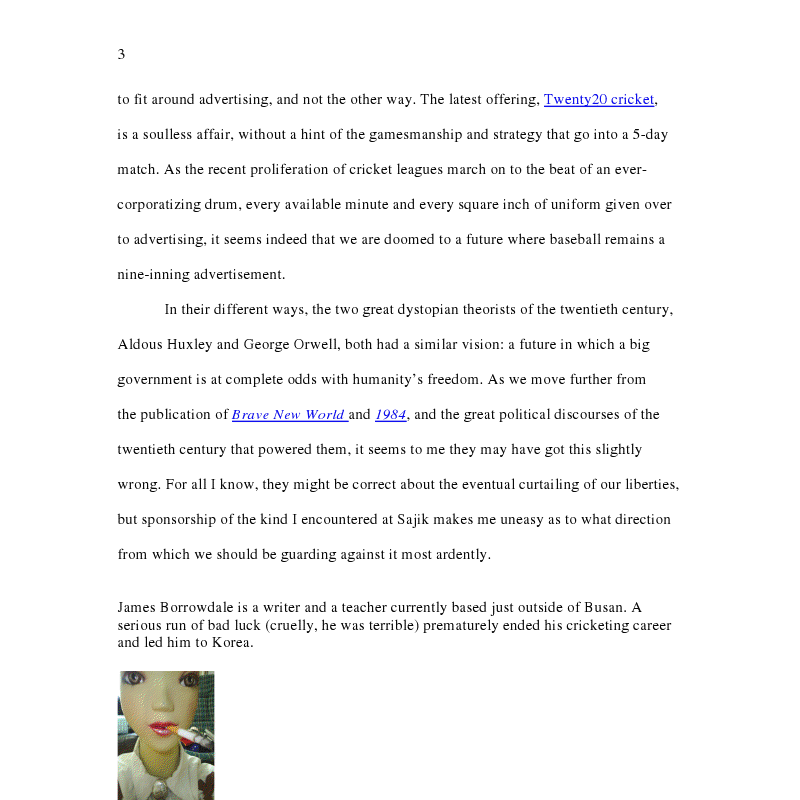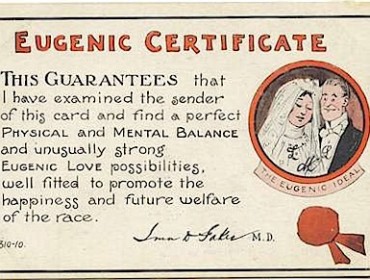EDITOR’S NOTES: This is the first part of a series about corporate culture impinging on sports
(Busan?) Lotte Giants.
James Borrowdale.
It was late afternoon and the sun angled in on Sajik Stadium, Busan. I was here to see the Lotte Giants in what was to be my first live baseball game. Below the players were practicing and the crowd bristled with expectation. It was hot, the first truly hot day of the season, when the sun and humidity sucks energy from your unsuspecting body, the tiniest exertion causing a disproportionate amount of sweat. All I could think of was beer. I signaled to the adjuma, handed over some cash, leaned back in my seat and took a sip. It was delicious and cold. In front of me two Korean men were drinking soju from paper shot glasses.
I have always looked down on baseball as the bastard offspring of my beloved cricket (a quick introduction), which, after some cursory research, has begun to look like somewhat of a fallacy. However, the action below was doing little to excite me, and I began to wonder about why this was when both sports are essentially just balls and swinging bats. Well, I thought to myself, today is your chance to find out why one bores you to death, and the other you could watch all day.
Alas, I still can’t tell you. The game went on, and my boredom and drunkenness increased at the same rate, a very rare occurrence. The sun started to get low in the sky, but the heat remained as oppressive as ever. The players were toiling out in the middle, but that is their job. I was sitting down fanning myself with a paperback and drinking cold beer.
Despite the heat, the stadium was erupting. On stage a man dressed in white danced feverishly, whipping the crowds into more and more excitable states, now with orange plastic bags tied to their heads and pompoms of shredded newspaper. The whole stadium reverberated intermittently with a dozen or so different chants, all familiar melodically, but with the lyrics replaced by a single word: “Lotte”. This energy seemed horribly misplaced. As ever-present as the heat was, it was the ubiquity of these chants that began to depress me the most. As another “Lotte” chant sprang up, I began to realize that one of the most simple and enjoyable diversions from life – the passive watching of sport on a sunny afternoon, has been hijacked by corporate interests and turned into an act of tacit support. It seems geography has almost been completely removed as the chief indicator of sporting loyalty, leading one to wonder if there will soon be a time when it is forgotten that the Giants hail from Busan and the All Blacks from New Zealand. It may be equally as arbitrary, but geography doesn’t have an agenda. Sponsorship does, and may one day become the deciding factor in whom we support: their detergent makes my clothes the softest; that’s my team.
I was struck by a vision of the Lotte CEO, circling high above the ground in a blimp, looking down on this spectacle, his hands rubbing together gleefully, eyes maniacal. We have done it, he thinks, we have done it. There are 20 000 people screaming our name unthinkingly. Oh yes, we have done it. 
Give me a village green, the Sunday newspaper, and a ponderous game of cricket and I will be happy. But even as reread that last sentence, I know it is wishful thinking. The cricket of my childhood was modestly punctuated with advertisements whereas today it has become equally as monstrous as the game I saw below me, and the chants around me. There was a time when a game of cricket could be literally endless, but as interest has dwindled, shorter versions of the game have been rolled out; games that seem designed to fit around advertising, and not the other way. The latest offering, Twenty20 cricket, is a soulless affair, without a hint of the gamesmanship and strategy that go into a 5-day match. As the recent proliferation of cricket leagues march on to the beat of an ever-corporatizing drum, every available minute and every square inch of uniform given over to advertising, it seems indeed that we are doomed to a future where baseball remains a nine-inning advertisement.
In their different ways, the two great dystopian theorists of the twentieth century, Aldous Huxley and George Orwell, both had a similar vision: a future in which a big government is at complete odds with humanity’s freedom. As we move further from the publication of Brave New World and 1984, and the great political discourses of the twentieth century that powered them, it seems to me they may have got this slightly wrong. For all I know, they might be correct about the eventual curtailing of our liberties, but sponsorship of the kind I encountered at Sajik makes me uneasy as to what direction from which we should be guarding against it most ardently.

James Borrowdale is a writer and a teacher currently based just outside of Busan. A serious run of bad luck (cruelly, he was terrible) prematurely ended his cricketing career and led him to Korea.










